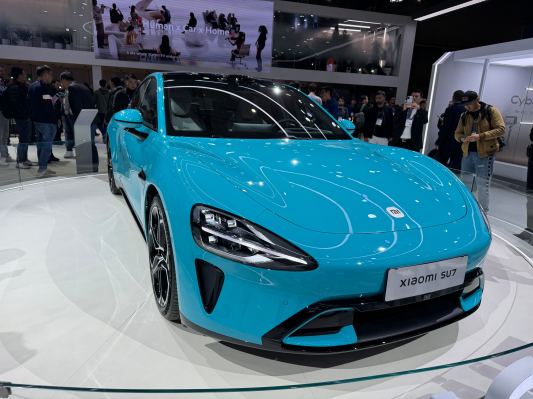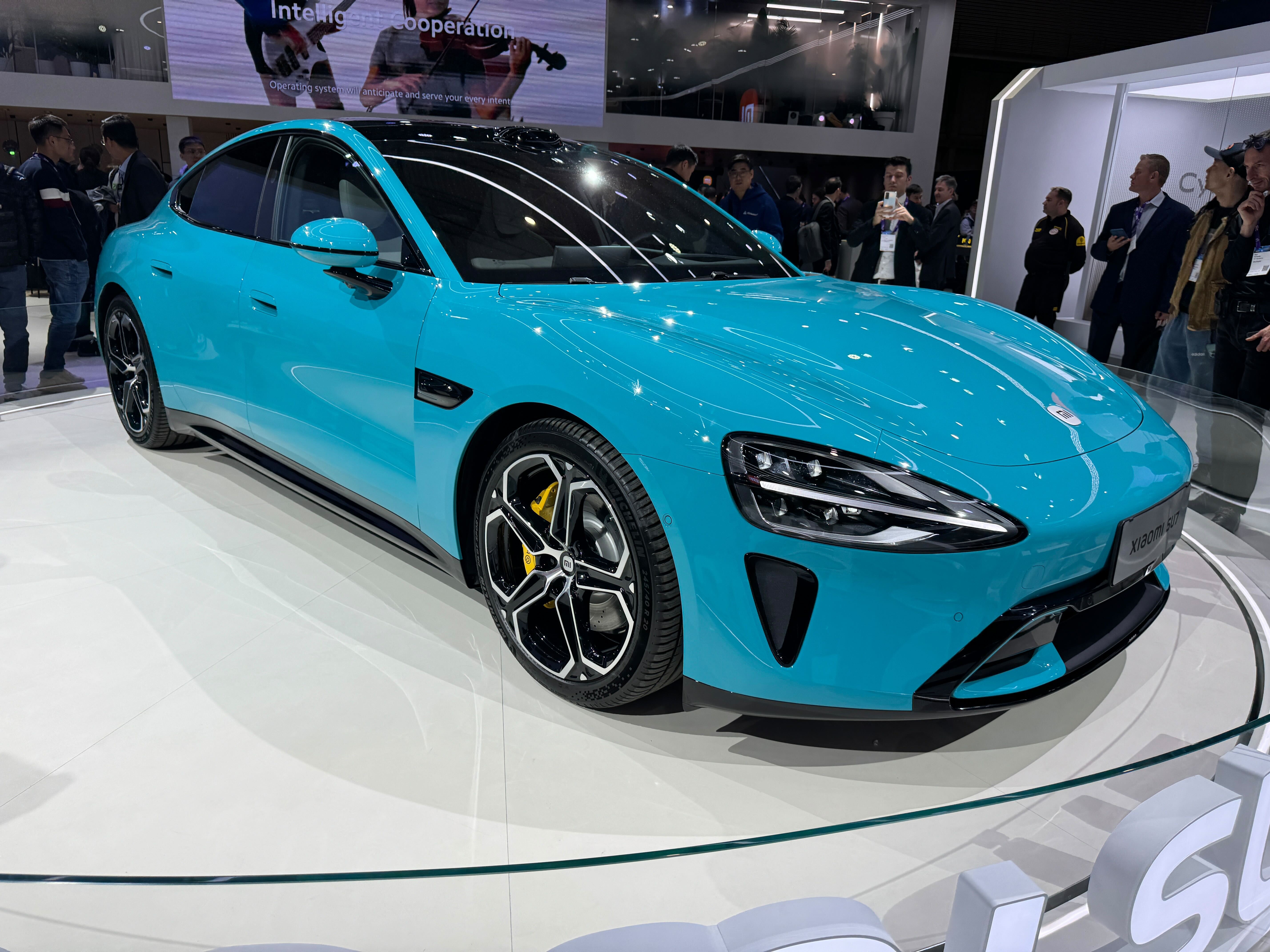ARTICLE AD

Xiaomi is having a good MWC. The Chinese tech firm’s booth has been packed since show doors opened this morning. It’s a stark contrast to neighboring Samsung, whose sparsely populated booth reflects what has largely been a quiet event for the Galaxy maker.
After popping in to check out Xiaomi’s newish robot dog earlier today, we returned to the space this afternoon to get a closer look at the electric vehicle it announced at CES back in January. The car is the latest in a long line of consumer electronics companies looking to make a mark on the automotive space, including Sony and, by most accounts, Apple.
But where Sony’s Afeela push is very much a collaboration with Honda (with both companies owning a piece of the company), Xiaomi is going it alone on the branding front. Also, unlike others, the SU7 “full-size high-performance eco-technology sedan” has a rough release timeframe, with plans to arrive in China at some point next year.

Image Credits: Brian Heater
As Sean noted in his writeup of the original news, among other things Xiaomi has access to China’s rapidly expanding EV supply chain. The company has also been working on “HyperOS” for years – it’s kind of one operating system to rule them all, as it were. Accordingly the focus of its MWC this year is “Human x Car x Home” or “Redefining connectivity.”
The company notes,
Xiaomi EV’s first product – the highly anticipated Xiaomi SU7, is positioned as a “full-size high-performance eco-technology sedan” that pushes boundaries in performance, ecosystem integration, and the mobile smart space. Alongside Xiaomi SU7 design, Xiaomi has developed the five core EV technologies: E-Motor, CTB Integrated Battery, Xiaomi Die-Casting, Xiaomi Pilot Autonomous Driving, and Smart Cabin. Backed by a monumental investment of over CNY 10 billion RMB in R&D, and a global team of more than 3,400 engineers and 1,000 technical experts in key areas, Xiaomi has produced an outstanding vehicle.
Beyond these tidbits, the company isn’t offering a lot of specifics around the vehicle. Xiaomi declined my request to sit down with a representative to dig into things a bit further. Instead, the company told me, it prefers to keep information limited to the speeches given by the spokespeople semi-regularly in the booth.
Here’s what I can say: the SU7 is a car – and nice looking one at that. It was parked inside Xiaomi’s MWC booth atop a rotating platform. This model is the same blue color as the images released during CES.

Image Credits: Brian Heater
The specifics of HyperOS are also largely marketing speak at the moment. Here’s Xiaomi again,
Xiaomi’s transition from “Smartphone x AIoT”, the “Human x Car x Home” smart ecosystem seamlessly merges personal devices, smart home products, and cars. This facilitates seamless connectivity of hardware devices, real-time coordination, and driving advancements, as well as collaboration with industry partners. Designed with a vision to adapt to your needs, this proactive ecosystem is designed to seamlessly adapt to your needs, both current and future.
More than just an open-source technological advancement, Xiaomi HyperOS features system-level innovation designed to foster unhindered cross-device collaboration and ensure consistent operations across areas of Xiaomi’s integrated smart-life platform. As the foundation of the “Human x Car x Home” smart ecosystem, it integrates over 200 product categories incorporating 600 million global devices, and covering more than 95% of user scenarios.
The company says it is working with third party manufacturers, developers and other partners to deliver on some of those lofty promises.

 11 months ago
61
11 months ago
61 

